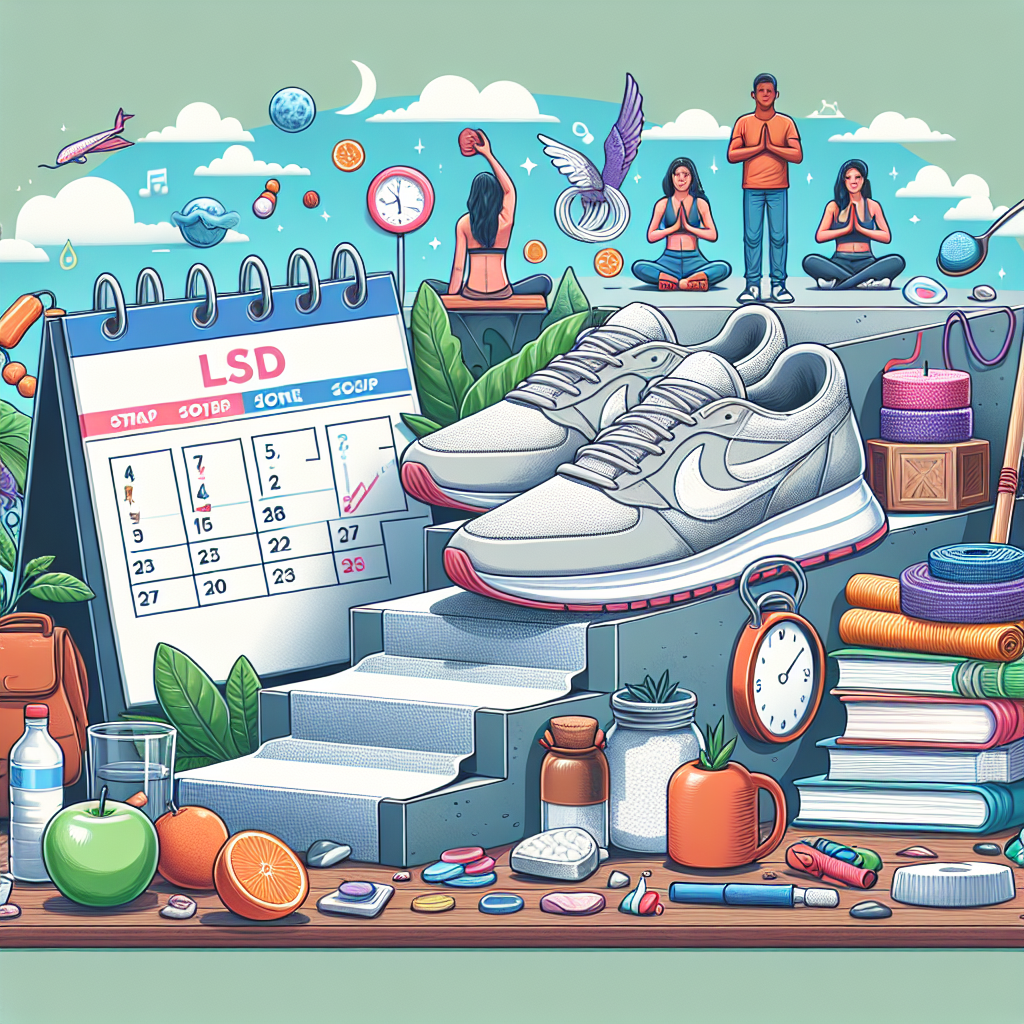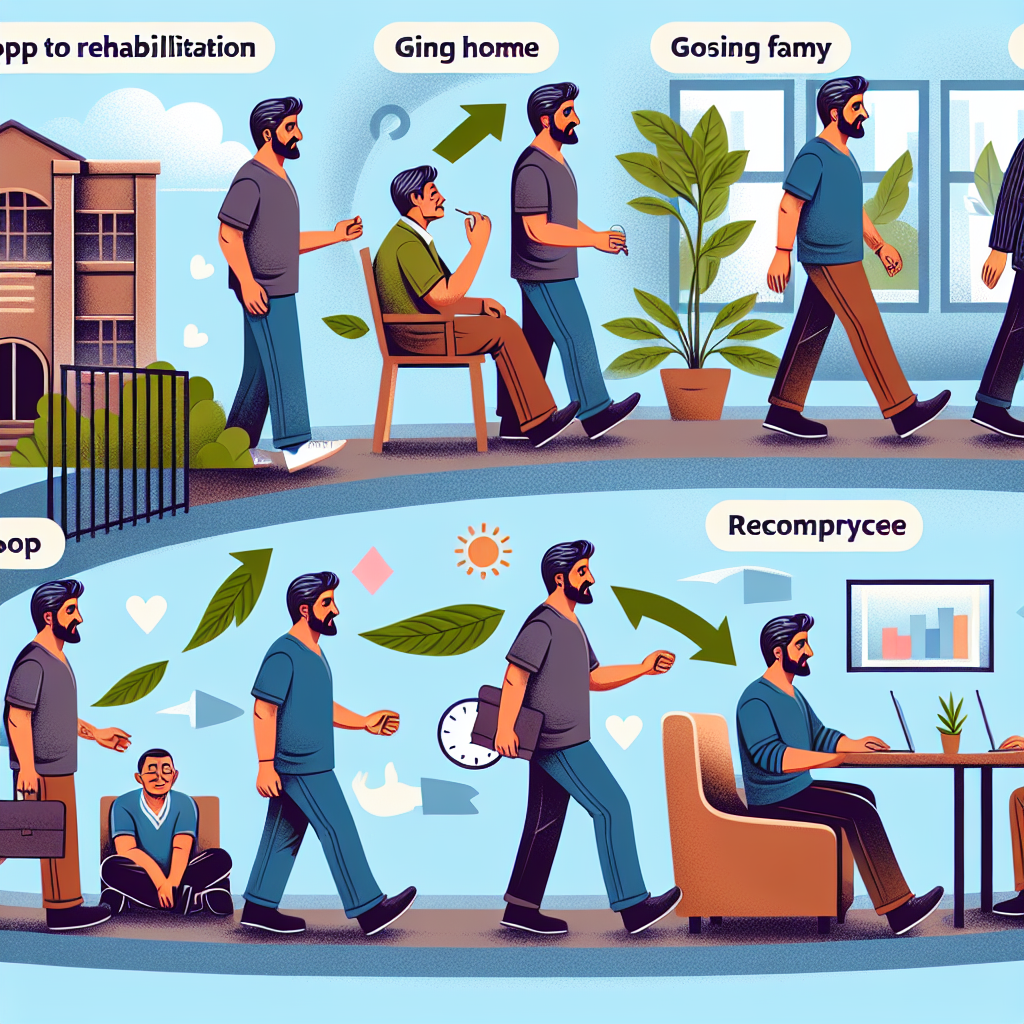-
Table of Contents
“Embrace Clarity, Celebrate Progress: Your Journey to Lasting Sobriety”
Introduction

Staying motivated in your sobriety from LSD addiction requires a multifaceted approach that encompasses mental, emotional, and physical strategies. The journey to sobriety is often challenging, but with the right tools and mindset, it is entirely achievable. This guide will explore various techniques to help you maintain your motivation, including setting clear goals, building a strong support network, engaging in healthy activities, and practicing self-care. By understanding and implementing these strategies, you can strengthen your resolve and continue on the path to a healthier, substance-free life.
Setting Achievable Goals for Long-Term Sobriety
Setting achievable goals is a cornerstone of maintaining long-term sobriety from LSD addiction. The journey to sobriety is often fraught with challenges, but by establishing clear, attainable objectives, you can create a roadmap that guides you through the process. One of the first steps in setting these goals is to understand the importance of breaking down your larger aim of staying sober into smaller, more manageable tasks. This approach not only makes the overall goal seem less daunting but also provides a sense of accomplishment as you achieve each milestone.
To begin with, it is crucial to set realistic and specific goals. For instance, rather than vaguely aiming to “stay sober,” you might set a goal to attend a certain number of support group meetings each week. This specificity helps to create a clear path forward and allows you to measure your progress. Additionally, setting short-term goals, such as staying sober for one day at a time, can be incredibly effective. These daily victories build up over time, reinforcing your commitment and boosting your confidence.
Moreover, it is essential to celebrate your achievements, no matter how small they may seem. Recognizing and rewarding yourself for reaching these milestones can provide the motivation needed to continue on your path. This could be as simple as treating yourself to a favorite activity or spending time with loved ones who support your journey. Celebrating your progress not only reinforces positive behavior but also helps to create a positive association with your sobriety.
Another key aspect of setting achievable goals is to remain flexible and adaptable. Life is unpredictable, and there will be times when you face setbacks or challenges. It is important to view these obstacles not as failures but as opportunities to learn and grow. Adjusting your goals as needed and being kind to yourself during difficult times can help maintain your motivation. Remember, the path to sobriety is not a straight line, and it is okay to take detours as long as you keep moving forward.
In addition to setting personal goals, seeking support from others can be incredibly beneficial. Surrounding yourself with a network of supportive friends, family, and professionals can provide the encouragement and accountability needed to stay on track. Joining a support group or finding a mentor who has successfully navigated their own sobriety journey can offer valuable insights and inspiration. These connections remind you that you are not alone and that others have successfully overcome similar challenges.
Furthermore, incorporating healthy habits into your daily routine can support your sobriety goals. Regular exercise, a balanced diet, and sufficient sleep all contribute to overall well-being and can help reduce the temptation to relapse. Engaging in activities that bring you joy and fulfillment, such as hobbies or volunteering, can also provide a sense of purpose and keep your mind focused on positive pursuits.
Lastly, it is important to continually reassess and refine your goals as you progress in your sobriety journey. As you achieve your initial objectives, set new ones that challenge you to grow further. This ongoing process of goal-setting and achievement helps to maintain your motivation and ensures that you are always working towards a better version of yourself.
In conclusion, setting achievable goals is a powerful tool in maintaining long-term sobriety from LSD addiction. By breaking down your larger aim into manageable tasks, celebrating your progress, remaining flexible, seeking support, incorporating healthy habits, and continually reassessing your goals, you can stay motivated and committed to your journey. Remember, each step forward, no matter how small, is a victory worth celebrating.
Building a Support Network for Lasting Recovery
Building a support network is crucial for lasting recovery from LSD addiction. The journey to sobriety is often fraught with challenges, and having a strong support system can make all the difference. One of the first steps in building this network is to reach out to family and friends who are supportive of your recovery. These individuals can provide emotional support, encouragement, and a sense of accountability. It is important to communicate openly with them about your struggles and successes, as this transparency can strengthen your relationships and provide a solid foundation for your recovery.
In addition to family and friends, joining a support group can be incredibly beneficial. Support groups, such as Narcotics Anonymous (NA) or SMART Recovery, offer a safe space to share your experiences and learn from others who are on a similar journey. These groups can provide a sense of community and belonging, which is essential for maintaining motivation in your sobriety. Moreover, hearing the stories of others who have successfully overcome their addiction can be a powerful source of inspiration and hope.
Another key component of building a support network is seeking professional help. Therapists and counselors who specialize in addiction recovery can offer valuable guidance and support. They can help you develop coping strategies, address underlying issues that may have contributed to your addiction, and work through any emotional or psychological challenges you may face. Regular therapy sessions can also provide a structured environment to discuss your progress and setbacks, helping you stay focused on your recovery goals.
Furthermore, engaging in healthy activities and hobbies can play a significant role in maintaining your sobriety. Finding new interests and passions can help fill the void left by your addiction and provide a positive outlet for your energy and emotions. Whether it’s exercising, painting, writing, or volunteering, these activities can help you build a new, fulfilling life in sobriety. Additionally, participating in group activities or classes can introduce you to new people who share your interests, further expanding your support network.
It is also important to set realistic and achievable goals for your recovery. Breaking down your long-term sobriety goals into smaller, manageable steps can make the process feel less overwhelming and more attainable. Celebrating your achievements, no matter how small, can boost your confidence and motivation. Remember that recovery is a journey, and it’s essential to be patient and kind to yourself along the way.
Moreover, practicing self-care is vital for maintaining your sobriety. Taking care of your physical, emotional, and mental well-being can help you stay strong and resilient in the face of challenges. This includes getting enough sleep, eating a balanced diet, exercising regularly, and finding healthy ways to manage stress. Mindfulness practices, such as meditation or yoga, can also help you stay grounded and focused on your recovery.
Lastly, staying motivated in your sobriety requires a commitment to ongoing personal growth and self-improvement. Continuously seeking out new knowledge, skills, and experiences can help you stay engaged and motivated in your recovery journey. This might involve reading books on addiction and recovery, attending workshops or seminars, or exploring new hobbies and interests.
In conclusion, building a support network is essential for lasting recovery from LSD addiction. By reaching out to family and friends, joining support groups, seeking professional help, engaging in healthy activities, setting realistic goals, practicing self-care, and committing to personal growth, you can create a strong foundation for your sobriety. Remember that you are not alone in this journey, and with the right support and resources, you can achieve lasting recovery and build a fulfilling, sober life.
Developing Healthy Coping Mechanisms
Developing healthy coping mechanisms is crucial for maintaining motivation in your sobriety from LSD addiction. The journey to sobriety is often fraught with challenges, but by adopting effective strategies, you can navigate these obstacles and stay committed to your recovery. One of the first steps in developing healthy coping mechanisms is to understand the triggers that may lead to a relapse. Identifying these triggers, whether they are emotional, environmental, or social, allows you to create a plan to avoid or manage them effectively.
In addition to recognizing triggers, it is essential to build a strong support network. Surrounding yourself with positive influences, such as supportive friends, family members, or a recovery group, can provide the encouragement and accountability needed to stay on track. Engaging in regular meetings or therapy sessions can also offer a safe space to discuss your struggles and successes, further reinforcing your commitment to sobriety.
Another vital aspect of developing healthy coping mechanisms is to find alternative activities that bring you joy and fulfillment. Engaging in hobbies or interests that you are passionate about can serve as a positive distraction and help to fill the void left by substance use. Whether it’s painting, playing a musical instrument, or participating in sports, these activities can provide a sense of purpose and accomplishment, which is essential for maintaining motivation.
Physical exercise is another powerful tool in your arsenal. Regular physical activity not only improves your overall health but also releases endorphins, which are natural mood lifters. Incorporating exercise into your daily routine can help reduce stress, anxiety, and depression, all of which are common triggers for relapse. Whether it’s a brisk walk, a yoga session, or a workout at the gym, finding an exercise routine that you enjoy can significantly enhance your mental and emotional well-being.
Mindfulness and meditation practices can also play a significant role in developing healthy coping mechanisms. These practices encourage you to stay present and focused, helping to reduce the impact of negative thoughts and emotions. By incorporating mindfulness techniques into your daily routine, you can cultivate a sense of inner peace and resilience, making it easier to handle the challenges that come with sobriety.
Furthermore, maintaining a balanced and nutritious diet is essential for your overall well-being. Proper nutrition can have a profound impact on your mood and energy levels, making it easier to stay motivated and focused on your recovery. Avoiding excessive caffeine and sugar, and instead opting for whole foods rich in vitamins and minerals, can help stabilize your mood and provide the energy needed to stay active and engaged in your sobriety journey.
Lastly, setting realistic and achievable goals is crucial for maintaining motivation. Breaking down your long-term sobriety goals into smaller, manageable steps can make the process feel less overwhelming and more attainable. Celebrating your progress, no matter how small, can provide a sense of accomplishment and reinforce your commitment to staying sober.
In conclusion, developing healthy coping mechanisms is essential for staying motivated in your sobriety from LSD addiction. By understanding your triggers, building a strong support network, engaging in fulfilling activities, incorporating physical exercise, practicing mindfulness, maintaining a balanced diet, and setting achievable goals, you can create a solid foundation for a successful recovery. Remember, the journey to sobriety is a marathon, not a sprint, and with the right strategies in place, you can stay motivated and committed to a healthier, substance-free life.
Celebrating Milestones and Progress in Sobriety
Celebrating milestones and progress in sobriety is a crucial aspect of maintaining motivation in your journey away from LSD addiction. Recognizing and honoring these achievements can provide a sense of accomplishment and reinforce your commitment to a drug-free life. As you navigate the path of sobriety, it is essential to understand the importance of these milestones and how they can serve as powerful motivators.
One of the first steps in celebrating your progress is to set clear, attainable goals. These goals can be short-term, such as staying sober for a week, or long-term, like reaching a year of sobriety. By breaking down your journey into manageable segments, you create opportunities to celebrate your successes more frequently. Each milestone, no matter how small, is a testament to your strength and determination. Acknowledging these achievements can boost your self-esteem and provide the encouragement needed to continue moving forward.
In addition to setting goals, it is important to find meaningful ways to celebrate your milestones. This could involve treating yourself to something special, such as a favorite meal, a new book, or a day trip to a place you enjoy. Celebrations do not have to be extravagant; the key is to choose activities that bring you joy and reinforce the positive changes you are making in your life. By associating your progress with positive experiences, you create a rewarding feedback loop that can help sustain your motivation.
Another effective strategy for celebrating your progress is to share your achievements with others. Whether it is with a trusted friend, family member, or support group, talking about your milestones can provide additional validation and encouragement. The support and recognition from others can be incredibly uplifting and remind you that you are not alone in your journey. Moreover, sharing your story can inspire others who may be struggling with their own sobriety, creating a sense of community and mutual support.
It is also beneficial to reflect on the personal growth and changes you have experienced since beginning your sobriety. Take time to journal about your journey, noting the challenges you have overcome and the lessons you have learned. This reflection can help you appreciate how far you have come and reinforce the positive impact of your sobriety on your life. By regularly revisiting these reflections, you can maintain a sense of perspective and gratitude, which can be powerful motivators in times of doubt or difficulty.
Furthermore, consider incorporating mindfulness and self-care practices into your routine. Activities such as meditation, yoga, or simply spending time in nature can help you stay grounded and connected to your goals. These practices can also provide a healthy outlet for managing stress and emotions, reducing the risk of relapse. By prioritizing your well-being, you reinforce the importance of your sobriety and create a strong foundation for continued success.
Lastly, it is important to remain patient and compassionate with yourself. Sobriety is a journey, and there may be setbacks along the way. Instead of viewing these setbacks as failures, see them as opportunities for growth and learning. Celebrate your resilience and the fact that you are committed to getting back on track. By maintaining a positive and forgiving attitude, you can stay motivated and focused on your long-term goals.
In conclusion, celebrating milestones and progress in sobriety is an essential part of staying motivated in your journey away from LSD addiction. By setting goals, finding meaningful ways to celebrate, sharing your achievements, reflecting on your growth, incorporating mindfulness practices, and remaining compassionate with yourself, you can create a supportive and inspiring environment that fosters continued success. Each milestone is a reminder of your strength and determination, and by honoring these achievements, you reinforce your commitment to a healthier, drug-free life.
Q&A
1. **Question:** What are some effective strategies to maintain motivation in sobriety from LSD addiction?
**Answer:** Setting clear, achievable goals and tracking progress can help maintain motivation in sobriety from LSD addiction.
2. **Question:** How can support groups aid in staying motivated during sobriety from LSD addiction?
**Answer:** Support groups provide a sense of community, shared experiences, and accountability, which can be crucial for staying motivated during sobriety.
3. **Question:** Why is it important to develop new hobbies and interests in maintaining sobriety from LSD addiction?
**Answer:** Developing new hobbies and interests can fill the time previously spent on drug use and provide a sense of purpose and fulfillment, aiding in maintaining sobriety.
4. **Question:** How does regular physical exercise contribute to staying motivated in sobriety from LSD addiction?
**Answer:** Regular physical exercise can improve mental health, reduce stress, and increase overall well-being, which can help in staying motivated in sobriety from LSD addiction.
Conclusion
Staying motivated in your sobriety from LSD addiction involves several key strategies: setting clear, achievable goals; building a strong support network of friends, family, or support groups; engaging in regular physical and mental health activities such as exercise, meditation, or therapy; avoiding triggers and high-risk situations; and continuously educating yourself about the dangers of LSD and the benefits of sobriety. Consistent self-reflection and celebrating small milestones can also reinforce your commitment to a sober lifestyle.



